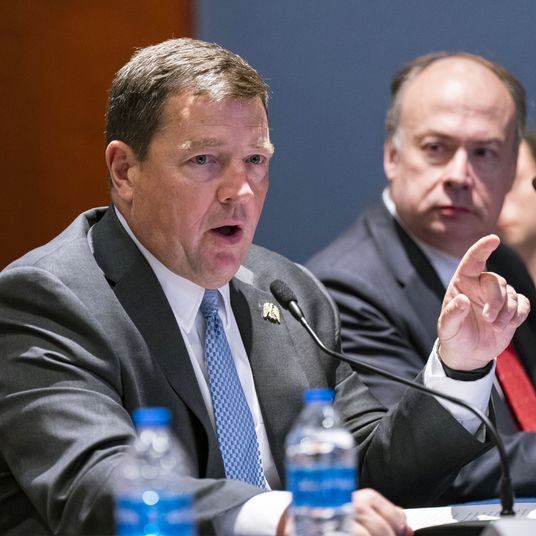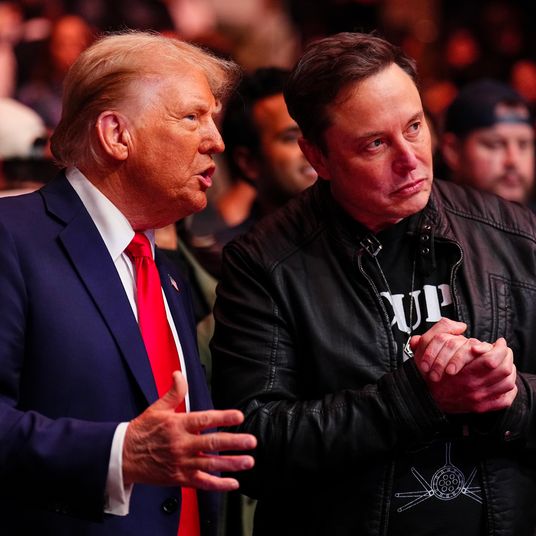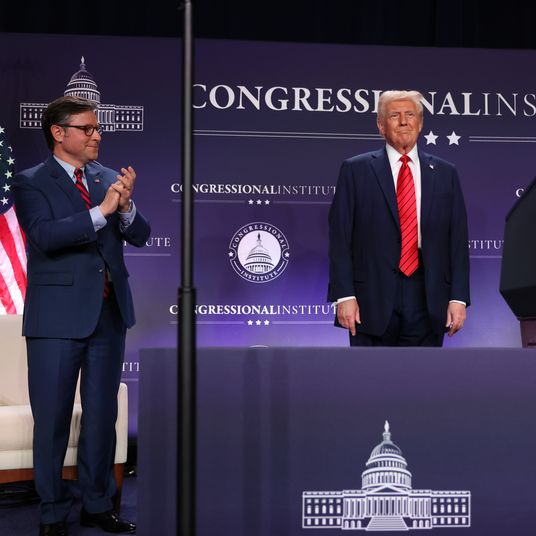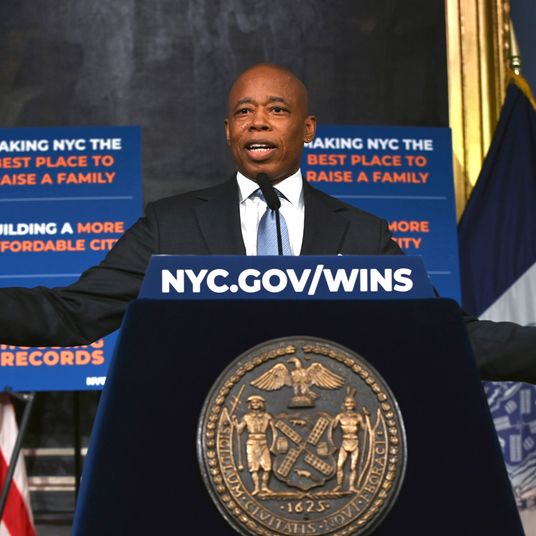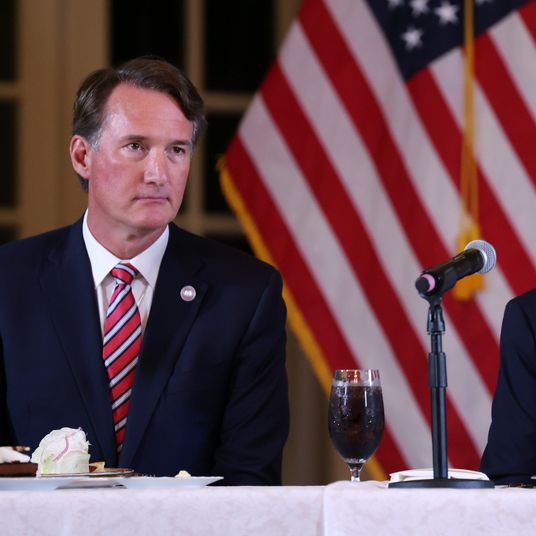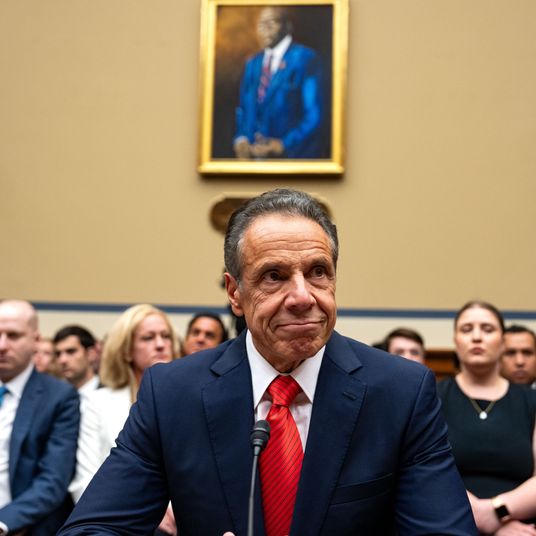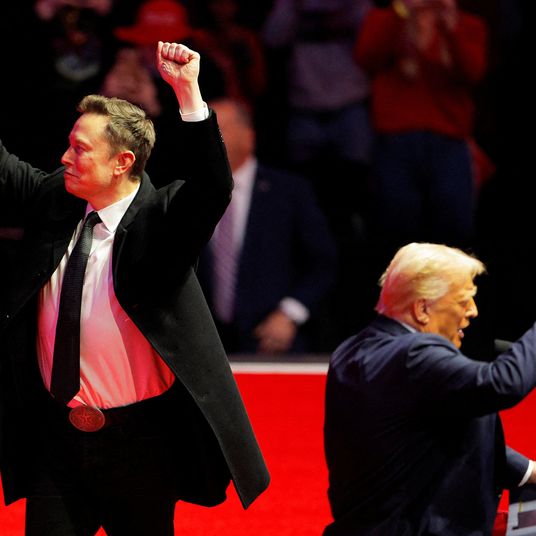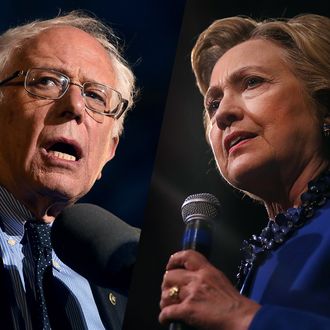
If Hillary Clinton does as well in tonight’s five northeastern primaries as the polls indicate she should, then she still won’t be the “putative” Democratic nominee — a formal lock on a majority of pledged delegates probably won’t happen until June 7. But she will strengthen her position as the “presumptive” nominee: the winner unless something rather weird happens down the road that enables Bernie Sanders to win in unlikely places and by unlikely margins.
So the strategic question for Clinton of how to achieve a “soft landing” in Philadelphia with a united party and Sanders and his devotees fully onboard will grow sharper.
There is little question that Sanders himself is preparing to make his enthusiastic support at the convention and in a general-election campaign conditional on substantive and political concessions; he’s been telegraphing his determination to place his stamp on the party as a consolation prize for some time now. At Monday night’s MSNBC “town hall” event, he took the clever tack of projecting his disgruntlement onto his supporters rather than personalizing it:
If we end up losing, and I hope we do not, and Secretary Clinton wins, it is incumbent upon her to tell millions of people who right now do not believe in establishment politics or establishment economics, who have serious misgivings about a candidate who has received millions of dollars from Wall Street and other special interests, she has got to go out to you and to millions of other people and say, you know, “I think the United States should join the rest of the industrialized world and take on the private insurance companies and the greed of the drug companies and pass a Medicare for all.”
As noted by the Washington Post’s Greg Sargent, Clinton’s response to Sanders’s apparent lack of interest in achieving party unity without major concessions was basically to shame him via the example she set in 2008:
“Then-Senator Obama and I ran a really hard race; it was so much closer than the race right now between me and Senator Sanders,” Clinton said, adding that this time around she is far ahead of Sanders in the delegate count and total number of votes. “We got to the end in June, and I did not put down conditions. I didn’t say, ‘You know what, if Senator Obama does X, Y and Z, maybe I’ll support him. I said, ‘I am supporting Senator Obama because no matter what our differences might be, they pale in comparison to the differences between us and the Republicans.’ That’s what I did.”
At the time, Clinton said, 40 percent of her supporters said they wouldn’t support Obama.
The trouble with this analogy is that her campaign had few, if any, substantive arguments with Obama’s, and no particular demands for procedural changes in the nominating process either. The implied sexism many Clinton supporters saw in the eagerness of elites to get behind Obama was a grievance that could, and could only, be mitigated by tokens of respect for the vanquished candidate and for women, not by platform planks or process reforms.
The crusade for a “revolution” in the Democratic Party represented by the Sanders campaign is another thing entirely, and thus the kind of unconditional surrender she offered to Obama was never really on the table. If Clinton wants a peaceful convention, some concessions are probably in order. Selecting which to make and which to reject will be a delicate process. Where doubling down on shared positions to make them more of a priority is an option — as it is on, say, overturning Citizens United or pointed rhetoric on income equality — Clinton should have an easy time “caving” to Sanders’s demands. Even on some more detailed policy positions, hedging is entirely possible, as shown by Clinton’s recent willingness to concede that a carbon tax is one possible way to deal with greenhouse-gas emissions, or her contention that breaking up big banks may now be justified under Dodd-Frank. On the “political reform” front, it wouldn’t be that hard for Clinton & Co. to punt the idea of universally open primaries to some post-convention commission, which is generally how Democrats have always dealt with such matters.
But if Sanders and his supporters decide to go to the mats on “Medicare for all,” it will be more difficult for Clinton to surrender inconspicuously, especially if the planted axiom is that opposition to a single-payer system can only be explained by whorish submission to private health insurance and pharmaceutical interests, as Sanders generally insists.
The ultimate calculation Team Hillary must make is how much Sandernista unhappiness it is safe to accept, and within that calculation, whether the prime objective is a happy convention or minimizing possible defections in November.
Since presidential politics is ultimately about winning the general election, Clinton could probably afford to honk off Bernie and his devotees to some extent in Philadelphia if she is reasonably certain they’ll turn out for the Democratic ticket in November. And that’s where she and other Establishment Democrats have really caught a break from Republicans this year.
Experts may differ on the exact value of negative versus positive mobilization strategies, but there is not much question that either Donald Trump or Ted Cruz — at present the overwhelming favorites for the GOP nomination — would offer a virtual laboratory experiment in maximizing negative mobilization for Democrats. There are few if any Bernie Sanders policy priorities on which Cruz does not hold a near-opposite position. That’s also true to a considerable extent of Trump, with the added ingredient of an implied extra-constitutional threat to civil liberties that makes the word fascism spring easily to the lips of precisely the kind of people most likely to feel the Bern. To put it another way, if Hillary Clinton has to make policy concessions to convince liberal and “very liberal” voters to turn out to smite Cruz or Trump, then the general election may already be lost.
So in the final analysis, convention optics may be the central consideration for the Clinton campaign in figuring out exactly how much kowtowing to Sanders and his fans is in order, recognizing that too many concessions could convey a weakness that would offset the gains from early party unity. If Clinton makes it clear early and often that there are limits to the gestures she is willing to make, then Sanders’s leverage over her will accordingly be diminished.
All Clinton has to do in the meantime is actually win the nomination, if possible by margins that make it difficult for Sanders and his camp to claim they were robbed.







